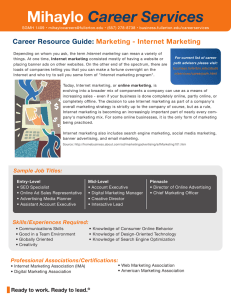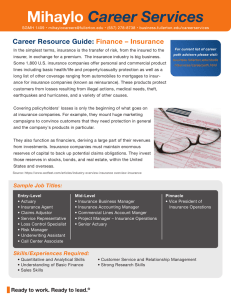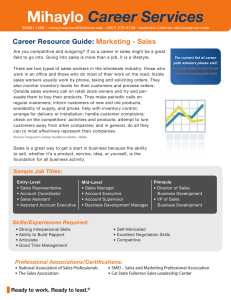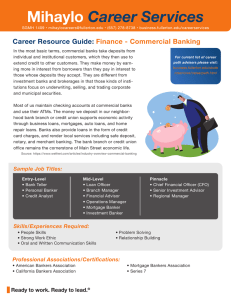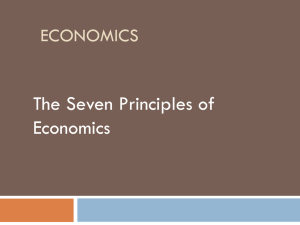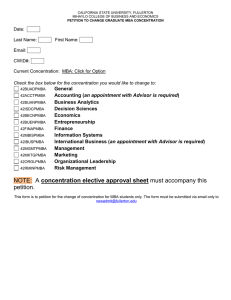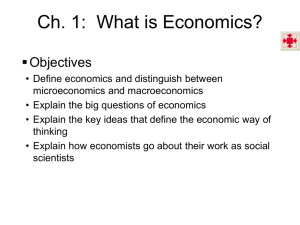Mihaylo Career Career Resource Guide:
advertisement
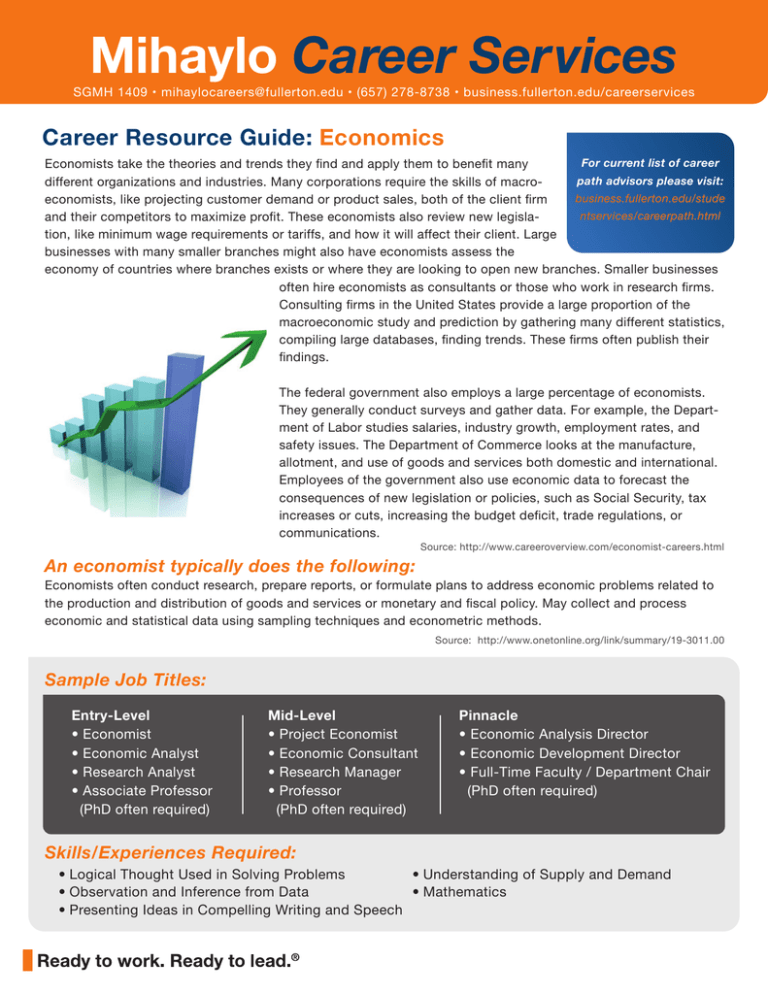
Mihaylo Career Services SGMH 1409 • mihaylocareers@fullerton.edu • (657) 278-8738 • business.fullerton.edu/careerservices Career Resource Guide: Economics For current list of career Economists take the theories and trends they find and apply them to benefit many path advisors please visit: different organizations and industries. Many corporations require the skills of macrobusiness.fullerton.edu/stude economists, like projecting customer demand or product sales, both of the client firm ntservices/careerpath.html and their competitors to maximize profit. These economists also review new legislation, like minimum wage requirements or tariffs, and how it will affect their client. Large businesses with many smaller branches might also have economists assess the economy of countries where branches exists or where they are looking to open new branches. Smaller businesses often hire economists as consultants or those who work in research firms. Consulting firms in the United States provide a large proportion of the macroeconomic study and prediction by gathering many different statistics, compiling large databases, finding trends. These firms often publish their findings. The federal government also employs a large percentage of economists. They generally conduct surveys and gather data. For example, the Department of Labor studies salaries, industry growth, employment rates, and safety issues. The Department of Commerce looks at the manufacture, allotment, and use of goods and services both domestic and international. Employees of the government also use economic data to forecast the consequences of new legislation or policies, such as Social Security, tax increases or cuts, increasing the budget deficit, trade regulations, or communications. An economist typically does the following: Source: http://www.careeroverview.com/economist-careers.html Economists often conduct research, prepare reports, or formulate plans to address economic problems related to the production and distribution of goods and services or monetary and fiscal policy. May collect and process economic and statistical data using sampling techniques and econometric methods. Source: http://www.onetonline.org/link/summary/19-3011.00 Sample Job Titles: Entry-Level � Economist � Economic Analyst � Research Analyst � Associate Professor (PhD often required) Mid-Level � Project Economist � Economic Consultant � Research Manager � Professor (PhD often required) Skills/Experiences Required: Pinnacle � Economic Analysis Director � Economic Development Director � Full-Time Faculty / Department Chair (PhD often required) � Logical Thought Used in Solving Problems � Understanding of Supply and Demand � Observation and Inference from Data � Mathematics � Presenting Ideas in Compelling Writing and Speech Mihaylo Career Services SGMH 1409 • mihaylocareers@fullerton.edu • (657) 278-8738 • business.fullerton.edu/careerservices Career Resource Guide: Economics Starting Salaries/Trajectory* NACE 2012 average starting salary: $58,200 BLS 2011 average salary: $90,550 Professional Associations/Certifications: � Masters of Business Administration (MBA) � Doctorate Degree in Economics (PhD) � American Economics Association � National Association for Business Economics (www.nabe.org) *Note: Salaries are highly dependent on location, company type, and candidate experience/education. For the purposes of this guide, we are providing average starting salaries as determined by the National Association of Colleges and Employers (NACE), overall average salaries as determined by the U.S. Bureau of Labor Statistics (BLS), as well as supplemental information found from various industry-specific sources. Industry Research and Tools: Job and Internship Search Sites: � Office of Policy, Economics, and Innovation— epa.gov/opei � Resources for Economics—rfe.org � econ-jobs.com/ � jobsineconomics.com/ � bls.gov/jobs/ Employers Hiring Our Graduates: About this guide: This resource guide is intended to provide an introduction to the industry and relay a sampling of the resources available to candidates. It is by no means comprehensive, nor intended to replace individual research based on specific job targets and/or recommendations from an advisor.
